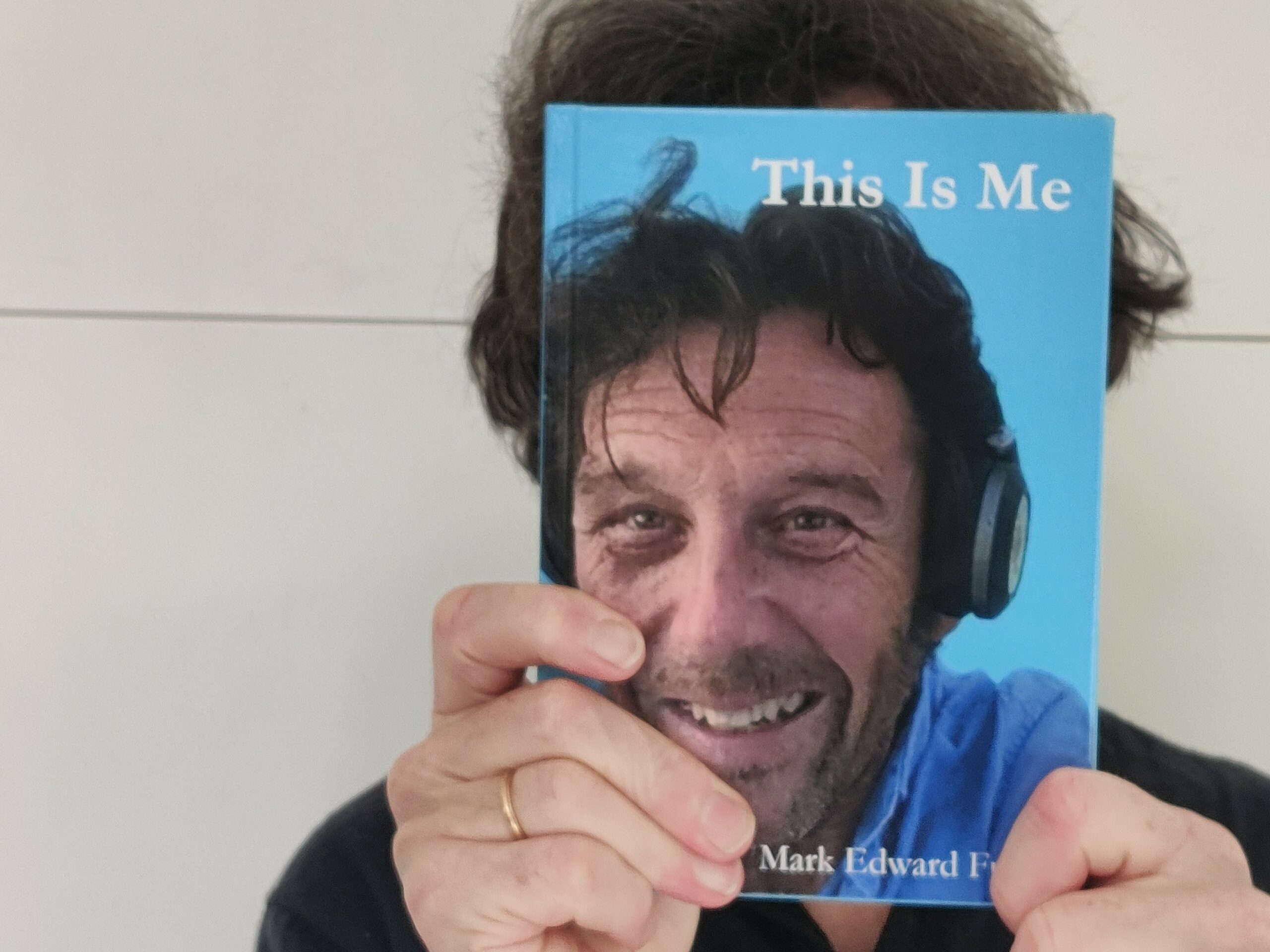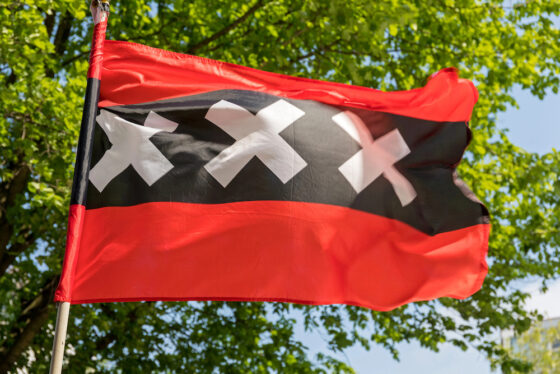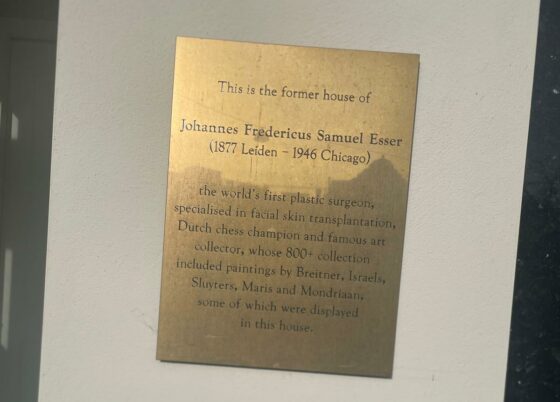“I found the freedom to be myself in Amsterdam”

Mark Fuller has lived in Amsterdam for over 40 years and is convinced that the Dutch capital’s combination of free expression, openness and decency was a crucial factor in his development both personally and as a journalist. Mark, (68) gave up his British nationality and became a Dutch citizen eight years ago, the year Britain left the European Union. Last year he published his first book of poetry entitled ‘This Is Me’.
How did you end up in the Netherlands?
It all started on a cold night in Calais on January 2, 1981when I was asked by the hippy driver of the Magic Bus if I was going left (Amsterdam) or right (Paris). I had originally intended on going to Paris to become a writer but had bumped into an uncle just as I was leaving England. He had invited me to spend the weekend in Amsterdam at the flat of his Dutch girlfriend.
I had just 300 guilders in my pocket and a change of clothes. The weekend turned into a week, a week into a month and by the summer I was working as a cleaner (despite my degree in Modern English Literature). I found the freedom to be myself in Amsterdam a feeling that has never left me in more than 40 years of living here.
Although I didn’t become a writer in Paris, I have now published my first book – This Is Me. I was diagnosed with Parkinson’s Disease in 2007 and writing poems gives me a way to reflect on life and communicate in a way that represents the essence of who I am – and always will be. In one sense all the poems are about Parkinson’s as the disease is always on my mind, but the range of subjects and styles of the poems means that the disease is only rarely referred to explicitly.

How do you describe yourself: an expat, love-pat or immigrant?
I have two labels: I’m an European to non-Dutch people and an Amsterdammer as far as the Dutch are concerned. I have lived here for 44 years and Amsterdam is just home. Nationality is no big thing to me but I definitely want the Amsterdam flag draped over my coffin.
How long do you plan to stay?
Until I die – or win the lottery! In which case I will become a multi-home owner with houses in New York, Paris and Tokyo (to name just a few).
Do you speak Dutch and how did you learn?
Yes, fluently. But it took some time. The Dutch tend to switch to English once they hear your accent even though your Dutch is good. Working for the Dutch newspaper Het Financieele Dagblad really helped. Reading Dutch books also improved my language skills.
How Dutch have you become?
I’ve become less English but I still retain an essence of Englishness and I love British humour. And of course, officially I am no longer British, but Dutch.
What is your favourite thing in the Netherlands?
Dutch football especially the amateur leagues which are really well organised with great facilities and hospitality – there’s nothing like a cold beer at the club bar after running around for 90 minutes.
Tell us something surprising you’ve learned about the Netherlands?
According to a plaque in the Cornelius Schuytstraat, the world’s first facial plastic surgeon Dutchman Johannes Fredericus Samuel Esser lived just round the corner from me in Amsterdam.

Which three Dutch people (dead or alive) would you like to meet?
Anton Corbijn, the world-famous Dutch rock photographer who has made amazing portraits of so many legendary rock artists since the 1980s as well as photos for album covers and videos for U2. His style is very distinctive – his photos are often in sharp black and white contrast and depict strong emotions. He revolutionised the way musicians were portrayed. I’d love to talk to him about the stories behind the photos.
Football legend Johan Cruijf (1947-2016). I interviewed him years ago for The Guardian and – unlike Louis van Gaal whom I’ve also met – Cruijff was really modest and enjoyable to talk to, especially for a football fanatic like me. I’d love to get his take on the latest performance of my team, Manchester United and his views on the Premier League which can buy up all the best players.
The phenomenal Dutch mountaineer Wilco van Rooijen who survived a gruelling descent of the formidable K2 following an avalanche that killed at least 11 climbers in 2008. He was missing for three days and suffered a broken arm and head injuries as well as sever frostbite. He went on to complete the so-called Explorers Grand Slam which included climbing the seven tallest mountains on the world’s seven continents (including Mount Everest without oxygen) as well as reaching the North and South Poles under his own steam. It would be fascinating to talk to him about the physical and mental side of his survival instincts.
What is your tourist tip
Be careful with the local weed – it’s a lot stronger than you might be used to!
If you had just 24 hours left in the Netherlands what would you do?
I would hire one of those canal boats and go on a nostalgic journey around Amsterdam stopping at some of the cafes and other places that have meant something special to me over the years.
If you’d like to buy a copy of Mark’s book (€12.50 incl postage in the Netherlands), please contact abi@daruvalla.com
Thank you for donating to DutchNews.nl.
We could not provide the Dutch News service, and keep it free of charge, without the generous support of our readers. Your donations allow us to report on issues you tell us matter, and provide you with a summary of the most important Dutch news each day.
Make a donation